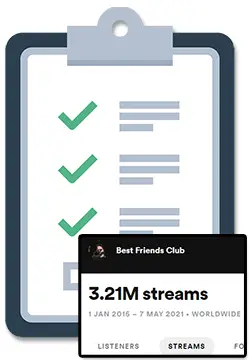If you have a passion for music and a talent for audio engineering, you may be interested in learning how to become a music producer.
…but is it possible to get a major degree in music production?
Yes, you can major in music production. Many colleges and universities offer degree programs in music production, where you can learn topics like audio engineering, music technology, and music theory.
Although you don’t need a degree in music production to become a music producer, it can help you pursue a wide range of career opportunities in the music industry, and develop valuable skills and knowledge that can be applied in related fields.
Why Major in Music Production?
A huge reason to get into music production is the fact that it can open up a wide range of career opportunities in the music industry because you pick up the essential skills and experience while being surrounded by plenty of networking opportunities.
Music producers are in demand at recording studios, radio stations, television networks, and film studios, and there are also several opportunities for work as freelance audio engineers, mixers, and mastering technicians.
In addition to career opportunities, majoring in music production can help you develop valuable skills and knowledge in areas such as audio recording, mixing and mastering, music theory, and composition.
These skills can be useful not just in the music industry, but also in related fields such as sound design, multimedia production, and audiovisual production, as well as when working on your own projects.
Studying music production can also provide you with valuable networking opportunities since many music production programs offer internships and industry connections that can help you get your foot in the door of the music industry.
You may also have the chance to collaborate with other musicians and producers, which can help you build your portfolio and establish a reputation and early contacts in the industry.
Where Can You Study Music Production?
There are many schools and universities that offer music production programs, both in the US and internationally with some of the top including the Berklee College of Music in Boston, the Clive Davis Institute of Recorded Music at NYU, and the Thornton School of Music at USC.
These schools offer both undergraduate and graduate programs in music production, as well as certificate programs and online courses.
In addition to traditional schools, it’s also possible to pursue online courses and programs although the credibility of any certificate that you get from these online platforms will likely not be as “prestigious” as a degree you’d get from a school.
What Does a Music Production Program Entail?
A music production program typically involves a combination of coursework and practical training with some of the courses you might take including audio recording, mixing and mastering, music theory, composition, and music business.
In addition to coursework, music production programs often offer practical experience through internships, studio sessions, and recording projects where you’ll have the chance to work with real musicians and producers and apply your skills in a real-world setting.
This hands-on experience is essential for building your portfolio and developing your skills as a music producer, and in my personal experience, will likely be the most crucial to any future opportunities that you get.
What Are the Requirements for Majoring in Music Production?
The specific requirements for majoring in music production can vary depending on the school and program with money usually being the largest barrier to entry.
With that said, some programs may require you to audition or submit a portfolio to demonstrate your skills and prior experience.
If you’re interested in majoring in music production, there are several steps you can take to prepare:
- Make sure you have at least a basic foundation in music theory and composition. Consider taking private music lessons or participating in school or community music programs.
- Explore the basics of audio engineering and recording software, such as Ableton or Pro Tools or Logic Pro, to gain experience with the tools used in music production.
- Research the specific requirements and deadlines for each school as some programs require a completed application, transcripts, test scores, and essays. Some may also require an audition or portfolio review, so be sure to prepare accordingly.



